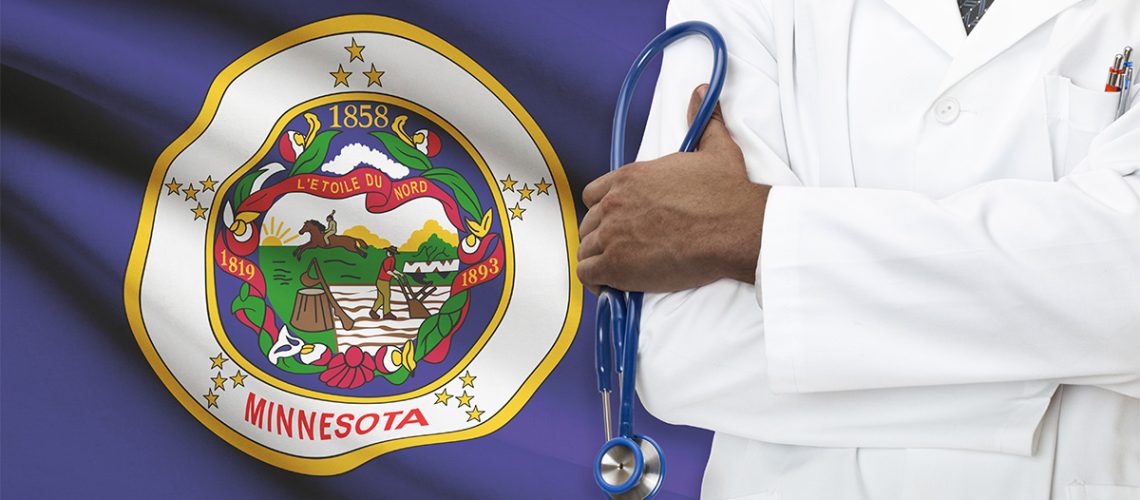On May 21, 2024, MN Governor Tim Walz signed the fast-tracked bill, Minnesota SF 4097, into law. Though there are significant changes that will impact medical debt collection, several of the more drastic pieces of the original bill were left out.
What is in SF 4097
The majority of Minnesota SF 4097 goes into effect on October 1, 2024, including the impact on medical debt as well as the various terms and definitions. The medical debt portion includes:
- A prohibition on credit reporting medical debt to the credit reporting agencies (CRAs).
- Consumers who successfully defend against a medical debt claim are awarded reasonable costs and attorney’s fees (outside of consent orders or mutual agreements).
- Collecting parties are not liable for violations if they are due to incorrect information provided to them by the healthcare provider or a previous collecting agency.
- Spousal liability for medical debt has been removed.
Several terms included in the bill have been defined to try and reduce confusion and questions. They include:
- Collecting Party – A new term that is defined as, “a party engaged in collecting medical debt.”
- Medical Debt – (a) “Medical debt” means debt incurred primarily for medically necessary health treatment or services. Medical debt includes debt charged to a credit card or other credit instrument, on or after October 1, 2024, under an open-end or closed-end credit plan offered specifically to pay for health treatment or services. (b) Medical debt does not include: (1) debt charged to a credit card or other credit instrument, under an open-end or closed-end credit plan, that is not offered specifically to pay for health treatment or services; (2) services provided by a veterinarian; (3) services provided by a dentist; or (4) debt charged to a home equity line of credit.
- Medically Necessary – defined as “safe and effective, not experimental or investigational, ordered by qualified personnel, used to diagnose or treat a condition, and does not exceed patient’s medical need.”
Garnishment and Exemptions
The garnishment and exemptions portion of Minnesota SF 4097 goes into effect on April 1, 2025. The original proposed bill included major changes to the amount that could be garnished from patients’ income, but the final bill included a toned-down version that has a sliding scale of how much of a patient’s weekly income can be garnished based on the amount they earn compared to the federal minimum hourly wages.
- 25% of a consumer’s earnings are garnishable if the consumer’s weekly income exceeds 80 times the federal minimum hourly wages.
- 15% of a consumer’s earnings are garnishable if the consumer’s weekly income is between 60 and 80 times the federal minimum hourly wages.
- 10% of a consumer’s earnings are garnishable if the consumer’s weekly income is at or below 60 times the federal minimum hourly wages.
Notable Omissions
The first version of Minnesota SF 4097 included several pieces that would have severely hampered medical debt collection in the state. The statute of limitations on a consumer debt judgement remained at 10 years and the consumer debt statute of limitations was kept at six years instead of reducing the three years as asked for. Finally, the original version of the bill included a $5,000 exemption for money in a bank account which was cut.
Conclusion
Minnesota SF 4097 will impact the way medical debt collections can happen in the state. If you would like to learn how Americollect can assist your facility, contact us by clicking the button below!
Ridiculously Nice Legal Disclaimer
The content provided in this communication (“Content”) is presented for educational and general reference purposes only. Americollect, Inc and/or AmeriEBO LLC either directly or indirectly through speakers, independent contractors, or employees (collectively referred to as “Americollect”) is providing this Content as a courtesy to be used for informational purposes only. The Contents are not intended to serve as legal or other advice. Americollect does not represent or warrant that the Content is accurate, complete, or current for any specific or particular purpose or application. This information is not intended to be a full and exhaustive explanation of the law in any area, nor should it be used to replace the advice of your own legal counsel. By using the Content in any way, whether or not authorized, the user assumes all risk and hereby releases Americollect from any liability associated with the Content.

